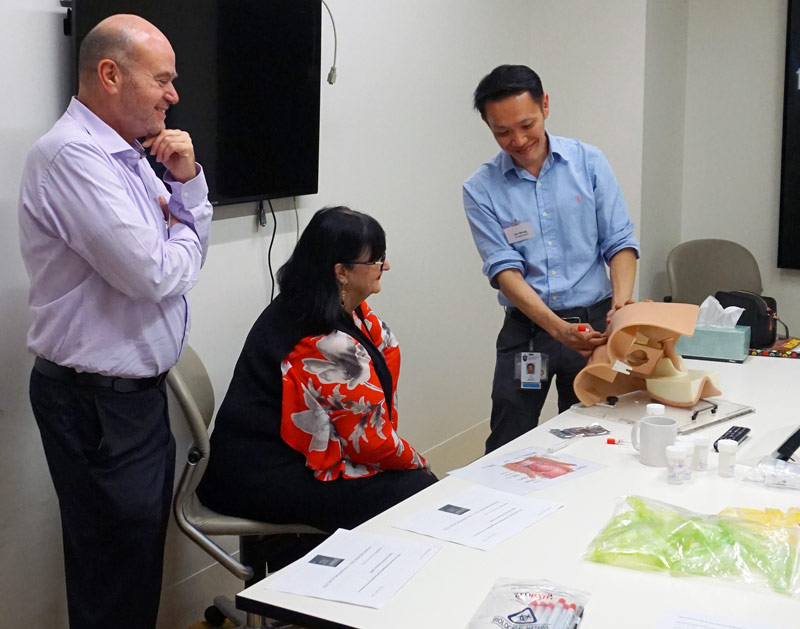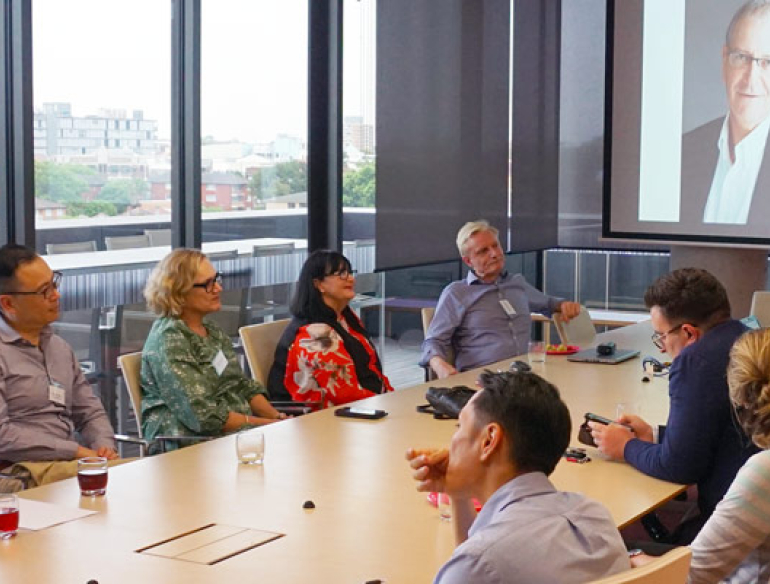The Kirby Institute has hosted the first of a series of workshops training GPs in techniques to improve screening for anal cancer, thanks to generous ongoing funding from The Glendonbrook Foundation. The workshops include a procedure now called Digital Ano-Rectal Examination (DARE) to include a thorough anal canal examination.
The main risk factor for the development of anal cancer is anal exposure to human papillomavirus (HPV), and HPV-associated anal lesions are almost always a precursor to the development of cancer (though not all lesions develop into cancer). Anal cancer is aggressive, and its incidence is increasing, particularly among HIV-positive men who have sex with men, yet there are only a handful of clinicians nationwide who are trained in High Resolution Anoscopy (HRA), a relatively new procedure which diagnoses early anal cancers; essentially the equivalent of colposcopy but involving the anal canal.
Dr Carmella Law, who holds a conjoint senior lecturer position at the Kirby Institute/UNSW along with her appointment at St Vincent’s Hospital, Sydney, is one of these trained clinicians, and using her expertise in HRA, she has developed this innovative workshop that provides both theoretical and hands-on training in DARE, which detects early anal cancers.
“Diagnosis of anal cancer is now almost as common as colorectal cancer in HIV positive men who have sex with men, yet screening rates are very low, because the procedures to test for anal cancer precursors are relatively new, and to learn them takes time and lots of practice,” explains Dr Law. “GPs are well versed in testing for rectal and prostate cancer using the digital exam, but anal cancer screening can be included in the same procedure, if you know what to look for.”

The Kirby Institute are leading the way in anal cancer research, having conducted the SPANC study, led by Professor Andrew Grulich, that investigated the natural history of anal cancer precursors in HIV positive men who have sex with men to aid in the development of screening programs, and the SPACE study, which is led by Associate Professor Mark Polizzotto and is evaluating whether pomalidomide is successful in treating anal cancer precursors. Both Professor Grulich and Associate Professor Polizzotto are presenters at the workshop.
The Glendonbrook Foundation funding also enabled Dr Law to travel to the UK in late 2017 and mid-2018, for training in laser treatment of anal cancer precursors, also known as high-grade squamous intra-epithelial lesions (HSIL). Having the expertise in the group will pave the way for future treatment studies.
“We are so pleased to run this pilot training workshop at the Kirby Institute, and help to train clinicians and spread this knowledge to hopefully catch more instances of early anal cancers before they develop into anal cancer,” says Dr Law. “We have a wealth of expertise here at the Kirby, and it’s important to continue share knowledge and skills, while ultimately building community partnerships between researchers, Sexual Health and other HIV services and experts.”
